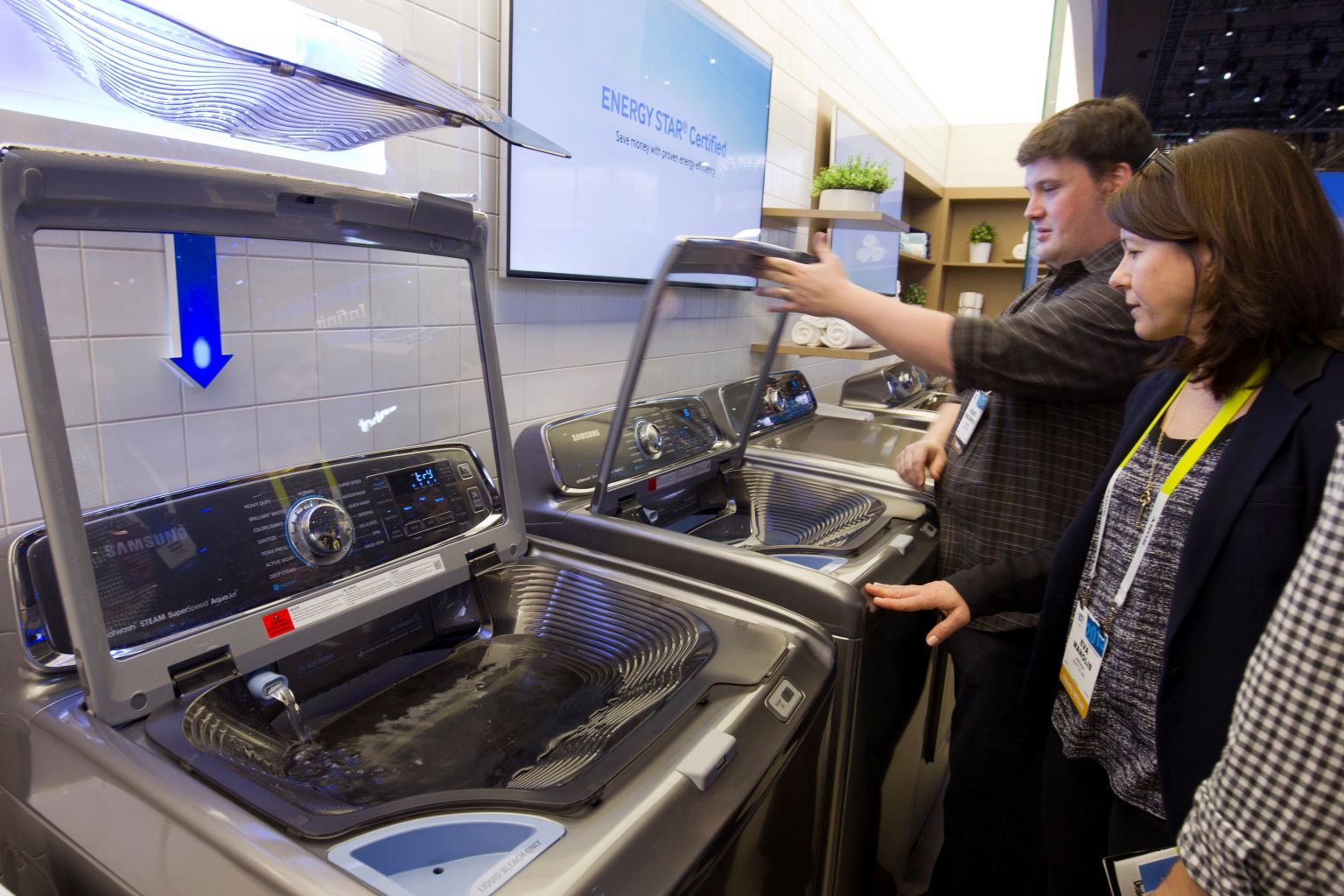South Korea hits back at US tariffs with WTO challenge
Sign up now: Get ST's newsletters delivered to your inbox

US President Donald Trump slapped steep tariffs on imports of washing machines and solar energy cells and panels on Jan 22.
PHOTO: REUTERS
Follow topic:
GENEVA (REUTERS) - South Korea has hit back rapidly at US tariffs on washing machines and solar panels, filing challenges and demands for compensation at the World Trade Organization.
The WTO published the South Korean complaints on Thursday (Jan 25) two days after United States President Donald Trump signed the steep tariffs into law. He billed the move as a way to protect American jobs but the solar industry said it would lead to thousands of layoffs and raise consumer prices.
The 30 per cent tariff on solar panels was among the first unilateral trade restrictions imposed by the Trump administration as part of a broader protectionist agenda aimed at helping US manufacturers, but which has alarmed Asian trading partners that produce lower cost goods.
South Korea challenged the US tariffs under the WTO's Safeguard Agreement, leaving open the possibility of a full trade dispute later.
The agreement gives the US 30 days to settle the matter, after which South Korea has a 60-day window to impose trade sanctions, if the US measures break WTO rules. It was not clear if the US could challenge that assumption.
Seoul is already seeking WTO trade sanctions to retaliate for Washington's failure to comply with an earlier WTO ruling.
On Wednesday US Commerce Secretary Wilbur Ross brushed off the threat of South Korea going to the WTO.
"The fact that they may get a favourable decision (at the WTO) doesn't mean that it's a correct decision," he said. "But in any event there's been no decision yet so it's a little bit too early to assume that the safeguards will be knocked out."
No country has ever negotiated a settlement under the WTO safeguard rules, and it was not clear if they could provide a quicker result than a full dispute, which could take three years or more, giving US manufacturers a long period of protection from competition by their South Korean rivals.
Under WTO rules, a country can impose safeguards - temporary emergency tariffs - to shield its domestic industry from a sudden, unforeseen and damaging surge in imports.
Ricardo Meléndez-Ortiz, head of the International Centre for Trade and Sustainable Development, said the solar tariffs would fail to boost US solar manufacturing and would destroy US jobs while impeding the fight against climate change.
"These tariffs are insufficient to really generate enough stimulus to create the manufacturing capacity that they are trying to stimulate," he told Reuters.
"It's just going to slow down the production of sustainable energy and solar in the US, in a big way."

